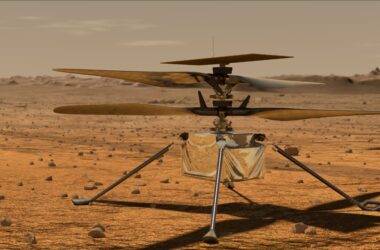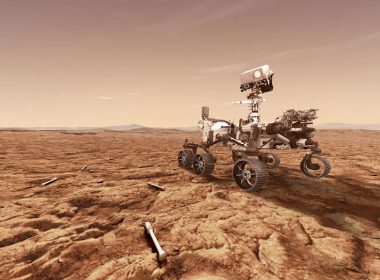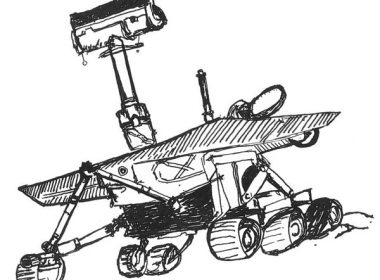In 1957, the boundaries between Earth and space were first breached: The USSR launched the satellite Sputnik into space, marking the first contact between humans and our galaxy, setting off the aptly named space race between the Soviet Union and the U.S. Even after icy international relations began to thaw[Read More…]
Tag: mars
A selection of 2021’s top advances in science
Content Warning: Mention of traumatic injury. In 2021, despite the pandemic continuing to wreak havoc on society, scientists continued to break boundaries in diverse fields of research. The McGill Tribune highlights four remarkable advances that occurred over the past year, while we were busy wondering whether the pandemic will ever[Read More…]
Unravelling the engineering behind the Perseverance landing
On Feb. 18, physicists and engineers marked a new chapter in Martian history: A series of radio signals confirmed the touchdown of NASA’s Perseverance rover. Over seven months, the rover completed a 300 million mile journey to Mars, averaging a speed of about 12,000 miles an hour. The Perseverance Rover[Read More…]
Nerdy going on thirty: Soup & Science returns for its 30th edition
The first-ever Soup & Science event, held in 2006, was hardly an extravagant affair. Professors and students gathered together in the second-floor lobby of the Trottier building to talk science, pass along research developments, and, of course, share in the event’s eponymous light refreshments. Thirty editions and a venue change[Read More…]
An obituary for ‘Oppy,’ humanity’s long-lost Space Prince
Opportunity, the Mars robotic rover that stunned humanity by remaining operational for over ten years past it’s original mission date, powered off for the last time on Feb. 13, 2019; a final goodbye at the end of a 225-million kilometer journey. Affectionately nicknamed ‘Oppy,’ the National Aeronautics and Space Administration’s[Read More…]
Fantastic alien microbes and how to find them
The 2015 discovery of water on Mars, an essential for life on Earth, sparked theories of thriving Martian life. Ideas of interstellar travel to find extracellular beings were suddenly within reach. The second Montreal Space Symposium on Oct. 18 to 19, offered a forum for the future of space exploration,[Read More…]
Arctic environments could yield clues about life on other planets
A research team led by Professor Lyle Whyte and post-doctoral fellow Jacqueline Goordial from McGill’s Department of Natural Resource Sciences has explored using low-cost, low-mass, and currently-available microbiological instruments to detect signs of life in astrobiological missions on other planets. Published in the December 2017 issue of Frontiers in Microbiology,[Read More…]
Nanosatellites: The future of space exploration?
NASA has always been an institute of great scientific accomplishment and innovation, but this comes with a hefty price tag. As the agency moves forward in its three-stage plan to put humans on Mars, the public agency’s budget is under heavy scrutiny. Increased pressure has been put on NASA to[Read More…]
Where to look for life on Mars: Finding clues from sulphate isotopes deep within the crust
Thanks to a study published in the October issue of Nature Communications, ecosystems are now known to be capable of surviving in the ancient rocks of the Earth’s crust. Two members of McGill’s Department of Earth and Planetary Sciences—Boswell Wing and Thi Hao Bui—assisted colleagues from the University of Alberta[Read More…]
This week in space
Throughout history, blood moons have been associated with bad omens. In Chinese tradition, a blood moon foreshadowed famine or disease. Mesopotamians believed that a lunar eclipse resulted from attacks by demons. But on Sept. 27, from 10:11 p.m. to 10:37 p.m., when the moon turned red, there were no famines[Read More…]













